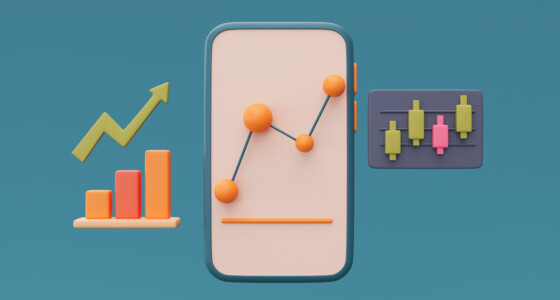

This article explains the Triple Bottom pattern, what it tells us about, how to use it for effective trading, and its limitations. We will also review how to spot the Triple Bottom pattern.
What is the Triple Bottom pattern?
The Triple Bottom refers to a bullish reversal pattern after a downtrend. After three efforts by the sellers to breach the support level prove unsuccessful, this candlestick pattern indicates an approaching shift in the trend pattern.
What does the Triple Bottom pattern tell us?
As its name implies, the Triple Bottom comprises three successive lows recorded at the same level or relatively close to it. The price action must be trading in a definite downturn for the chart’s pattern to appear and be successful.
The sellers attempt to drive the price down to test the horizontal support for the first time, but they encounter strong opposition from the purchasers. The price movement climbs higher as the traders pause before beginning the second effort.
Since the result of the subsequent attempt was the same, this level has become crucial since the sellers, who remain in command of the price movement, have failed twice.
The price should generally revert to similar levels seen during the preceding bounce. Given the strength of the downtrend, sellers attempt to break the purchasers’ determination by driving the price action downwards once again, but they are mostly unsuccessful.
When they eventually give out, the buyers take over the price movement, stretching the comeback further and wiping out most or all the prior losses.
Consequently, the Triple Bottom chart pattern must have three characteristics:
- A neckline featuring a break (this indicates the formation’s activation).
- A downward trend, where the security price must trade.
- Horizontal support (a trend line linking three nearly identical lows).
The Triple Bottom pattern neckline is the most crucial component since its upward break triggers the pattern and aids in establishing the take profit and stop loss.
Significance and Limitations
The Triple Bottom is an uncommon but incredibly effective reversal pattern. It’s rare because the development of three similar lows rarely occurs. As a result, the Double Bottom is a pattern that occurs more frequently since it only needs one low to occur.
Moreover, its rarity makes it a powerful and forceful pattern. After three unsuccessful tries to break lower, the sellers are severely worn out, which leaves them vulnerable to a comeback since purchasers are considerably more confident now that they have successfully held significant horizontal support.
There are no apparent flaws in the Triple Bottom structure. Its main drawback is that it doesn’t happen frequently; otherwise, it would be the most remarkable reversal pattern.

Spotting the Triple Bottom pattern
The Triple Bottom is reasonably simple to identify due to its rare nature. A downtrend, characterized by a string of lower highs and lower lows, is the first factor to watch out for. It generally stands out on the chart when three consecutive unsuccessful attempts to breach lower occur.
The Double Bottom is a more regular chart pattern, as stated previously. You must draw two bottoms on a chart and see if the price movement continues above the neckline following the second bottom. If yes, you should attempt to trade the Double bottom.
However, you should keep a careful eye on the price movement to determine if the third effort by the sellers to break the support will fail. The Triple Bottom pattern should then be triggered by a breach of the neckline in such a scenario.
Trading the Triple Bottom pattern
As previously mentioned, the Triple Bottom is a bullish reversal chart pattern. As a result, we’re searching for signs that the market is about to turn around.
A break across the neckline is the indicator we are searching for. If, for instance, a breakout candle closes substantially higher, denying us the chance to enter the market at a lower price, we switch to a 1-hour chart to locate our entry. The breakout candle must close above the neckline for us to enter, as with every chart pattern, including a breakout.
Alternatively, let’s wait for a test. The breakthrough’s strength indicates the possibility that the market will continue to increase. So, right after the breakout candle closes over the neckline, we place our entry. We can estimate the take profit using vertical blue, which depicts the distance between the neckline and support.
Frequently Asked Questions (FAQs)
Below we will answer the most popular questions of traders about the Triple Bottom pattern.
Is the Triple Bottom a bullish pattern?
Due to its capacity to predict the conclusion of a downward trend and a future price increase, the Triple Bottom pattern is typically viewed as bullish.
How is the Triple Bottom pattern recognized?
The easiest way to recognize a Triple Bottom pattern on the chart is to search for two bottoms, which identifies a Double Bottom pattern. This pattern is created if, following the second bottom, the price rises above the neckline.
A Triple Bottom pattern could appear if the price declines again and the support level is retested and broken for a third time. Ultimately, the pattern is considered to be confirmed if the price moves above the neckline.
The bottom line
The Triple Bottom pattern accurately predicts how much a trend will advance after it has begun by identifying the reversal inside the trendline. However, remember that although patterns provide helpful insight into potential price fluctuations, you shouldn’t solely depend on them. A variety of different variables influences the changes in prices.







